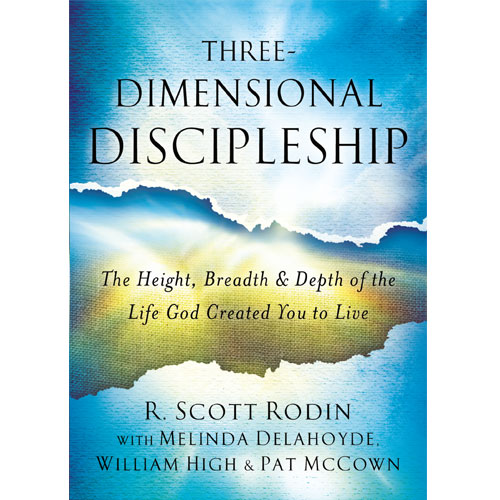Why Don’t We Run Toward Reconciliation?
Setting the groundwork with freedom and joy

Last week I announced that we were launching a new area of ministry, and that it scared me to death. This new focus is on how we steward reconciliation. I promised this week I would expand further on how the journey of the faithful steward is and must be a journey toward reconciling relationships on both the micro and macro level.
Since last week’s blog, there is one question that has been puzzling me, “why don’t we run toward reconciliation?” My perplexity is generated from a simple exercise. I hold in my mind the face of a person with whom I have a strained or broken relationship; a person with whom I need to be reconciled. When I think about the possible fruit of that reconciliation, when I see a smile on their face and imagine the moment when understanding is gained, empathy is generated, perspectives are shared, forgiveness is requested and granted, and relationship is restored, my heart feels great joy.
So why wouldn’t I want that joy in every relationship that cries out to be reconciled? Why wouldn’t I run toward reconciliation at every opportunity? To answer that question I went back to my soul searching and I came up with two possible answers.
To provide some context, the Center for Steward Leader Studies is “a ministry of freedom and joy.” It is built on what we call ‘steward theology’, and that theology moves people from a place of bondage to freedom, and a position of disobedient discontentment to obedient joy. This movement, what we call the journey of the faithful steward, is God’s in-working that manifests itself in a significantly altered worldview. It moves us from owners to stewards, from control seekers to fully surrendered, one-kingdom followers of Jesus.
These two outcomes – freedom and joy – work to undo the enemy and all that he would throw at us to keep us in bondage. The weapons he uses are the desire for control on the one hand, and a dislike for obedience on the other. Let me be personal.
Without the ongoing working of the Holy Spirit, I would give in to my natural tendencies to play the owner in my life, which means grasping control wherever possible, including my relationships. Instead of seeing them as gifts from God as they truly are, I would work my agenda into every relationship and require a positive return on investment for each. Seen in this ownership mindset, relationships that are damaged and broken become liabilities. It is far easier for me to write them off than to make an investment in restoring them, especially since doing so requires me to give up my highly-valued control.
The fruit of ownership is bondage. I may not see it that way, in fact I might be in full denial that such bondage has engulfed my spirit. But it’s bondage nonetheless. In this bondage I can’t follow Jesus with my whole heart. I can’t carry out the great commission or live out the great commandment with my spirit in shackles. So I settle for limping along rather than enjoying the abundant life Jesus so desperately wants me to experience in Him.
The second weapon is just as heinous. Seeking reconciliation is an act of obedience. If relationships are gifts from God, we cannot follow the giver of that gift and refuse to enter into processes that can bring about restored relationships at the same time. The two are mutually exclusive. Failing to seek reconciliation is nothing short of disobedience. It is following Jesus on our terms. Once again the enemy has found a weapon to rob us of the abundant life in Christ. There is no joy in disobedience, just as there is no freedom in ownership.
That’s why I don’t run to reconciliation. If I come to it at all, I do so begrudgingly. Reconciliation requires me to take on the posture of the humble steward, acknowledging that my life belongs to God. It requires me to surrender myself, my agenda, my pride, my rightness, my self-justification, and all the rest. Surrender robs me of control and strips away my selective segregation and its corresponding self- congratulations.
It hurts. And so does obedience. Yet deep in my spirit there is an undeniable resonance with the new man in Christ I am aspiring to become.
I’m convinced that freedom and joy are the legs we use to run toward reconciliation. The first gives us the heart to surrender ourselves as we listen to the stories, perspectives, and pain of others. The second keeps us at the table even when it’s difficult, knowing that we are in the center of the will of God when we seek to be reconciled.
Freedom and joy, surrender and obedience. Easy to say, hard to do. In fact, impossible except by the power of the Holy Spirit.
How are they working in your life today? Do they move you toward reconciliation with anticipation? If so, what relationships do you need to attend to today? They may be micro relationships; people you can name, faces you see, pain you can feel. They may be macro relationships; people groups you don’t understand and who don’t understand you, without faces, absent personal pain, yet needing reconciliation nonetheless.
It may be too much to expect to begin by running. I wish I could, but honestly I can’t, not yet. But I can crawl, then walk, then, hopefully, prayerfully run. Whatever our pace, will we move today in some tangible way in a direction we’ve neglected for so long?





